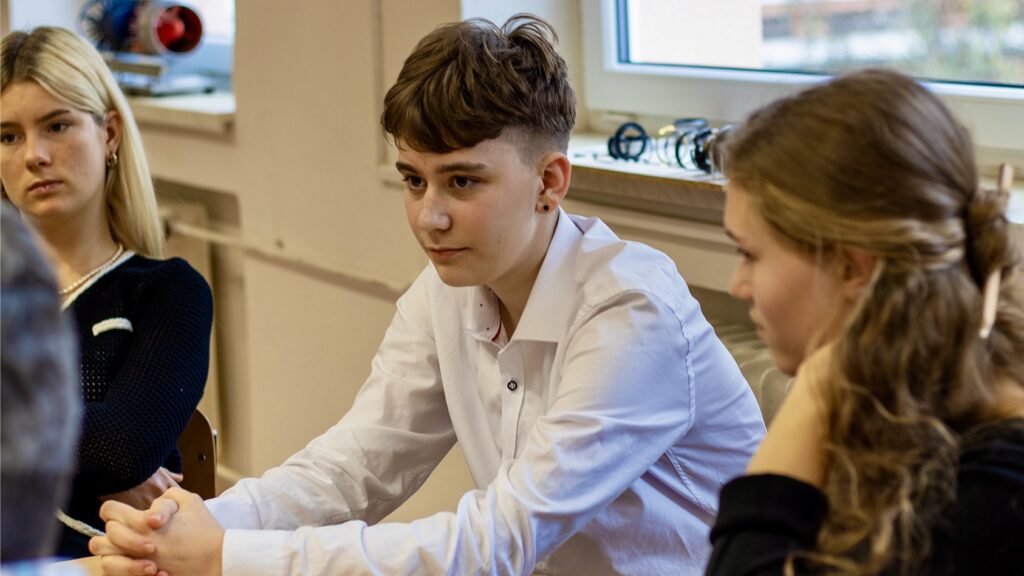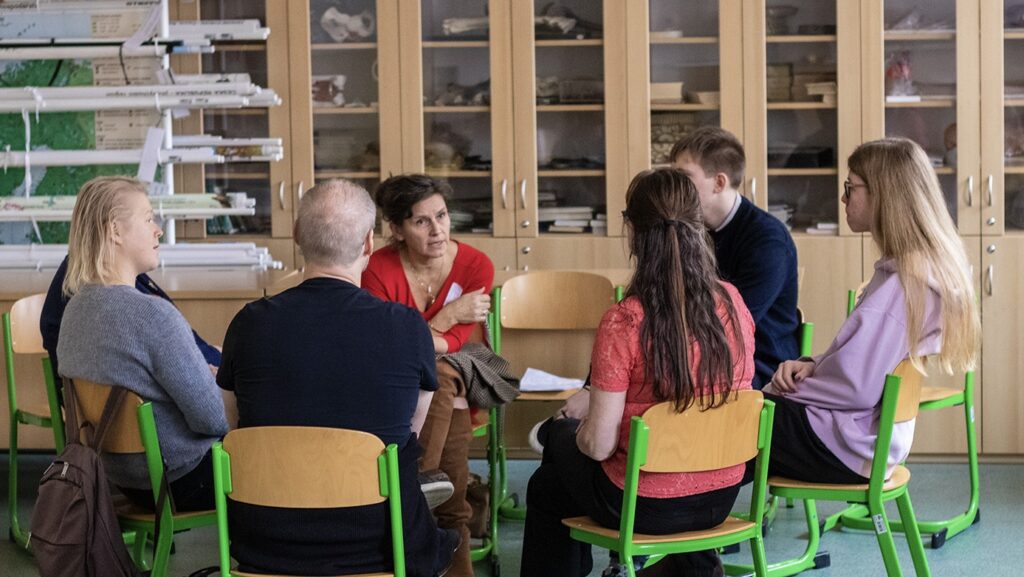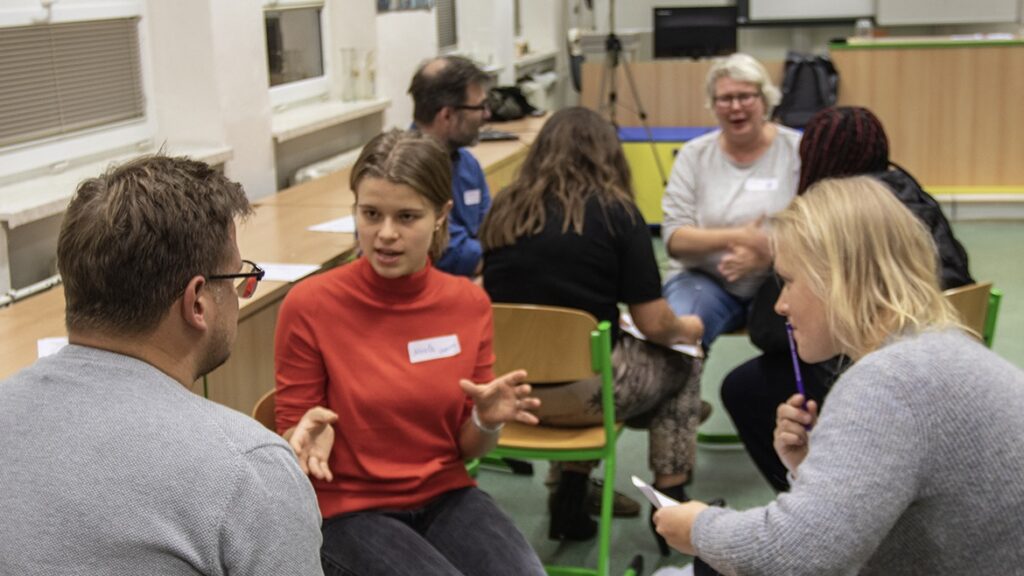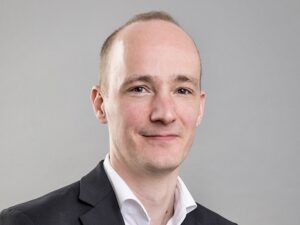Brussel, 15 February 2024
Empowering secondary school teachers and pupils

Emerging from an ECSWE working group, an Erasmus+ project on upper schools (UPSWE) was launched in April 2023, bringing together teachers and pupils.
Focusing on the needs of Steiner Waldorf secondary schools
The UPSWE project stands for Steiner Waldorf upper school education as a place for self-development of learners. It aims to offer teachers tailored support including effective methods for teaching adolescents (age 12+) while nurturing their well-being. It also aims to start creating a network of Steiner Waldorf secondary schools. The project was launched in April 2023, it will last 15 months, and is co-funded by the Erasmus+ programme. The leading partner of the project is the Ādaži Free Waldorf School Latvia, accompanied by the Ostrava Waldorf School in Czechia, the Snellman University College in Finland, the Association of Steiner Schools in Denmark, the e‑learning Waldorf platform (elewa), and ECSWE.
Creating 15 online lessons for teachers’ professional development
One of the project’s results is the creation of an online course for secondary school teachers available on the Elewa platform. The course includes 15 lessons designed and delivered throughout the project. Some lessons are video-recorded during the in-person project meetings in October 2023 in Ostrava in Czechia and in April 2024 in Ādaži in Latvia, while other lessons are recorded during the online meetings during the school year 2023/2024. Lecturers and their topics are: Dr Martyn Rawson on youth pedagogy, Ansis Nudiens on experiential learning, Prof. Gert Biesta on working artistically, Constanza Kaliks on will-power, Detlef Hardrop and Eeva Raunela on dialogic learning, and Ulrike Sievers on assessment.
Making secondary schools meaningful for young people
A few secondary school pupils from Latvia, Czechia, Finland, Denmark, and Germany were joining both the in-person UPSWE meetings. Even though the main target audience of the project are teachers, the project partners found it necessary to have the pupils’ voice present when discussing ways of teaching and approaching youth in secondary schools. During the first project meeting in Ostrava, the pupils highlighted topics that they want covered in their education. They were asking for space to discuss global political events, the role of AI in schools, mental issues in youth, and having more experiential learning opportunities.


Want more? Watch the video message from students to teachers
A question? Please don’t hesitate to contact us!




